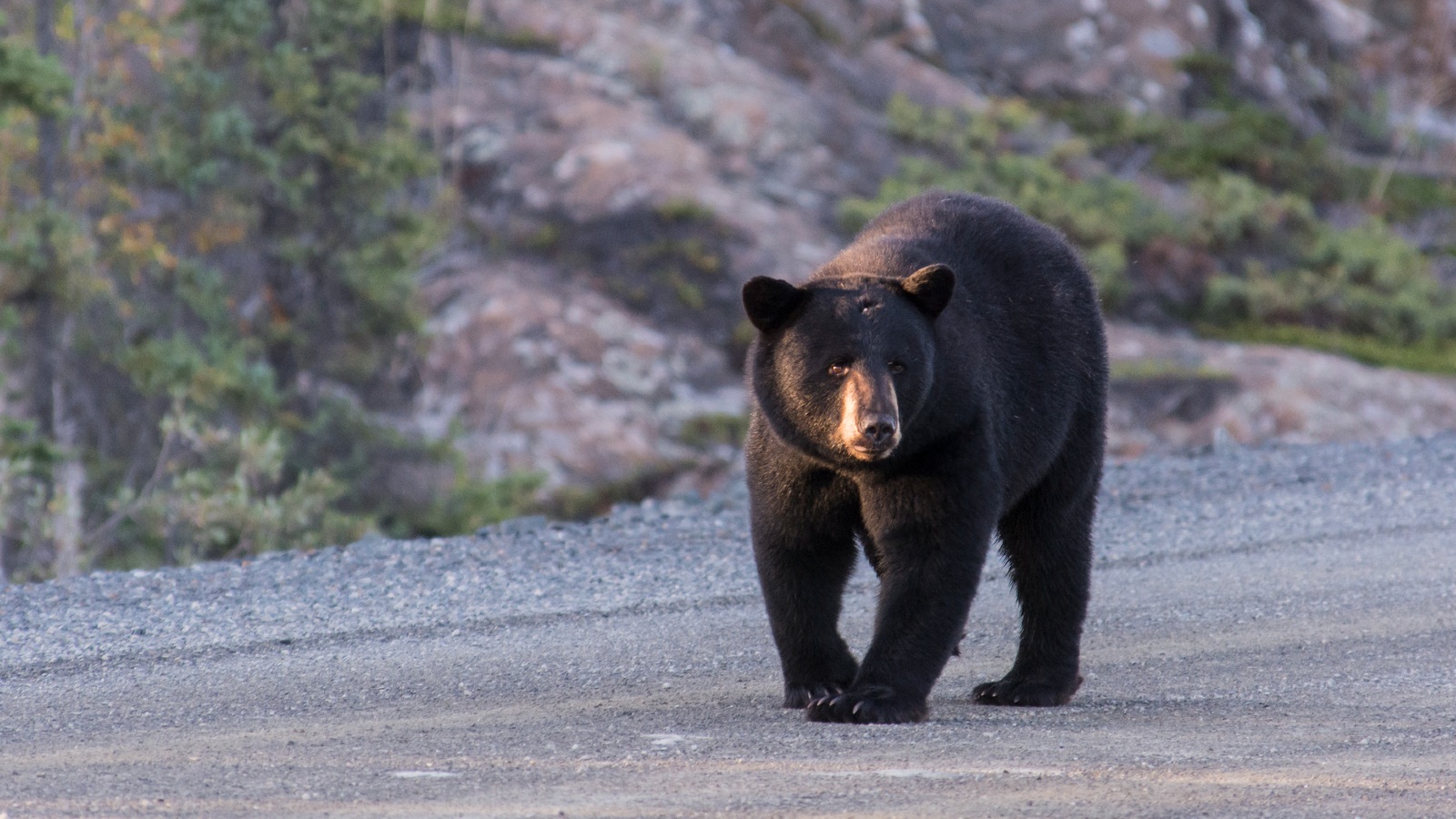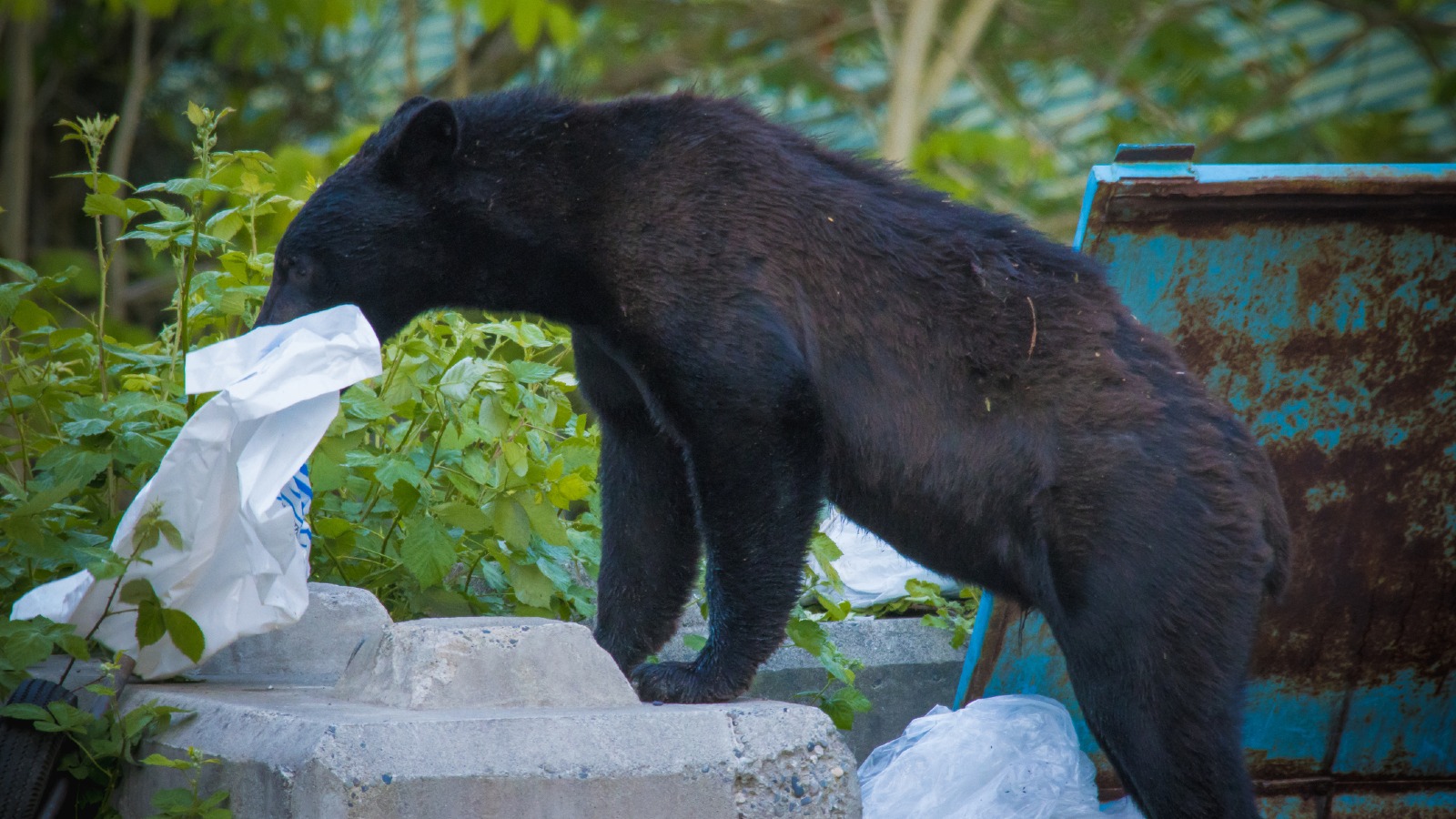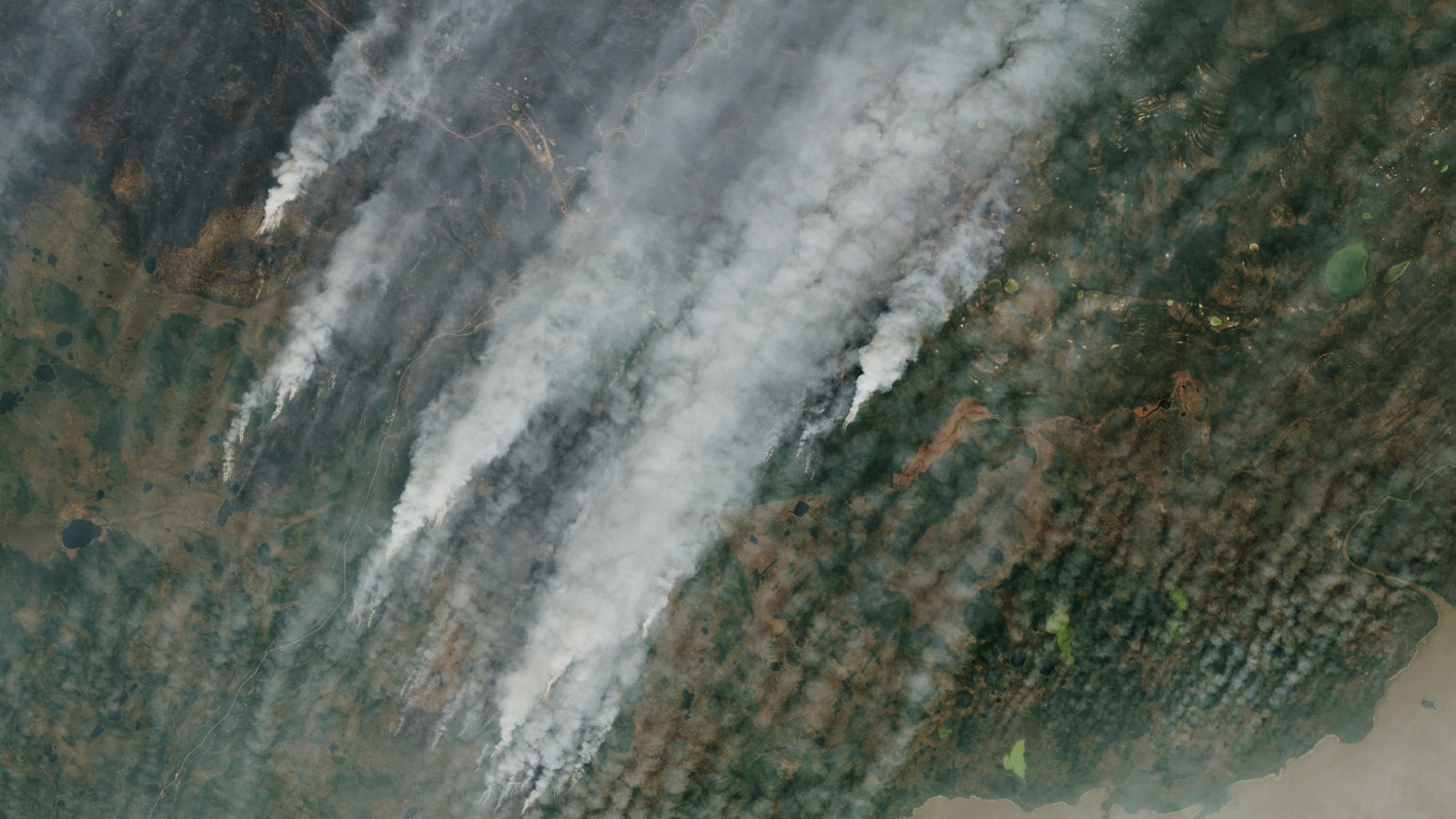Hungry bears invade and overrun abandoned city in Canada after wildfire evacuations
Yellowknife, which was recently evacuated due to the threat of wildfires, has become overrun with black bears that have moved into the empty streets in search of food.
Get the world’s most fascinating discoveries delivered straight to your inbox.
You are now subscribed
Your newsletter sign-up was successful
Want to add more newsletters?

Delivered Daily
Daily Newsletter
Sign up for the latest discoveries, groundbreaking research and fascinating breakthroughs that impact you and the wider world direct to your inbox.

Once a week
Life's Little Mysteries
Feed your curiosity with an exclusive mystery every week, solved with science and delivered direct to your inbox before it's seen anywhere else.

Once a week
How It Works
Sign up to our free science & technology newsletter for your weekly fix of fascinating articles, quick quizzes, amazing images, and more

Delivered daily
Space.com Newsletter
Breaking space news, the latest updates on rocket launches, skywatching events and more!

Once a month
Watch This Space
Sign up to our monthly entertainment newsletter to keep up with all our coverage of the latest sci-fi and space movies, tv shows, games and books.

Once a week
Night Sky This Week
Discover this week's must-see night sky events, moon phases, and stunning astrophotos. Sign up for our skywatching newsletter and explore the universe with us!
Join the club
Get full access to premium articles, exclusive features and a growing list of member rewards.
A Canadian city that was recently evacuated due to the threat of wildfires has been overrun by bears that swooped in to feed on the trash left behind when people abandoned their homes.
On Aug. 16, Yellowknife in Canada's Northwest Territories was evacuated as wildfires blazed through much of the surrounding area and came to within about 9 miles (15 kilometers) of the city's border. Around 95% of Yellowknife's roughly 20,000 residents left the city, while some key workers stayed behind, CBC News reported.
Around a week after Yellowknife was evacuated, those who remained noticed an unusual number of black bears (Ursus americanus) wandering the streets, CTV News reported. Since then, the number of bear sightings has steadily increased, but there are no official statistics for how many bears are now in the city.
Video footage shared by BBC News shows bears exploring people's gardens, walking in the road, rummaging through landfill and chasing a man into a hotel.
The bears are likely being drawn to the city because most people left their trash cans full of waste, meaning there's lots of free food for the bears to eat, James Williams, a Northwest Territory wildlife officer who has been patrolling the city in search of the bears, told CTV News. However, the wildfires have also likely played a role in "pushing the bears" away from their natural territories and toward Yellowknife, he added.
The number of bears sighted in Yellowknife normally increases around this time of year. Earlier in August, two bears were shot and killed by wildlife officers in Yellowknife after posing a risk to residents' safety, after one of them tried to break into a house. And around the same time last year, people were warned to stay off trails around the city after residents encountered a number of bears, some of which showed little to no fear toward humans.
Get the world’s most fascinating discoveries delivered straight to your inbox.
Wildfires may change how wildlife officers deal with the bears. Normally, officers use deterrents, such as bear spray and rubber bullets, to scare the bears out of town. When that fails, bears are captured and released far outside the city. But the wildfires will make it harder to release the bears back into the wild, Williams said. As a result, there is a chance that more bears may have to be euthanized.
"Our number one priority is to protect life and property of the people and city of Yellowknife and as a territory as a whole, and when it comes down to it, sometimes we do have to dispatch some of these animals," Williams said. But if they do end up having to kill some of the bears, it will be "in a most respectful way as possible," he added.

Harry is a U.K.-based senior staff writer at Live Science. He studied marine biology at the University of Exeter before training to become a journalist. He covers a wide range of topics including space exploration, planetary science, space weather, climate change, animal behavior and paleontology. His recent work on the solar maximum won "best space submission" at the 2024 Aerospace Media Awards and was shortlisted in the "top scoop" category at the NCTJ Awards for Excellence in 2023. He also writes Live Science's weekly Earth from space series.
 Live Science Plus
Live Science Plus








